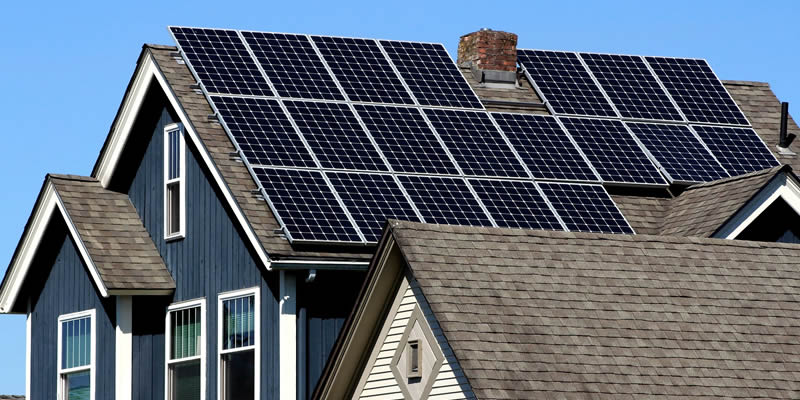In recent years, residential solar panels have gained immense popularity among homeowners looking to reduce energy costs and promote sustainability. By harnessing the sun’s energy, these panels convert sunlight into electricity, providing a clean and renewable energy source. This article will explore the various benefits of installing residential solar panels, the technology behind them, and important considerations for homeowners.
Understanding How Solar Panels Work
Residential solar panels are typically made of photovoltaic (PV) cells that convert sunlight into electricity. When sunlight hits these cells, it creates an electric field that generates direct current (DC) electricity. This electricity is then converted into alternating current (AC) electricity using an inverter, making it usable for home appliances. Homeowners can utilize this electricity to power their homes, reducing their reliance on the grid.
Financial Benefits of Solar Panels
One of the most compelling reasons to install residential solar panels is the potential for significant cost savings on energy bills. By generating your own electricity, you can reduce or even eliminate your monthly utility bills. Many homeowners report savings of 50% or more on their energy costs after installing solar panels. Additionally, various financial incentives, such as tax credits and rebates, can further reduce the upfront costs of installation.
Increasing Home Value
Installing residential solar panels can also increase the value of your home. Studies have shown that homes with solar energy systems sell for more than comparable homes without them. Potential buyers are often willing to pay a premium for a home with solar panels, as they recognize the long-term savings on energy costs. This increase in property value can be a significant benefit for homeowners looking to sell in the future.
Environmental Impact and Sustainability
Residential solar panels play a crucial role in reducing greenhouse gas emissions and promoting sustainability. By using solar energy, homeowners can decrease their carbon footprint and contribute to a cleaner environment. Solar energy is a renewable resource, meaning it will not deplete over time, making it a sustainable choice for energy generation. As more homeowners make the switch to solar, the cumulative impact on the environment can be substantial.
Choosing the Right Solar Panel System
When considering residential solar panels, it’s essential to choose the right system for your home. Factors to consider include the size of your roof, your energy needs, and your budget. Consulting with a solar energy professional can help you assess these factors and recommend a suitable system. There are various types of solar panels available, including monocrystalline, polycrystalline, and thin-film panels, each with its advantages and disadvantages.
Installation Process
The installation of residential solar panels typically involves several steps. First, a solar energy professional will conduct a site assessment to determine the best placement for the panels. After selecting a system, the installation team will mount the panels on your roof or in your yard and connect them to your home’s electrical system. The entire process can usually be completed within a few days, depending on the size of the system.
Maintenance of Solar Panels
One of the appealing aspects of commercial solar panels is their low maintenance requirements. Designed for durability, most commercial systems are engineered to last 25 years or more with minimal upkeep. Regular cleaning to remove dust and debris, along with periodic inspections, can help ensure that your solar panels operate at peak efficiency. Additionally, many manufacturers provide warranties, offering peace of mind about the performance and reliability of your investment. This low maintenance nature not only enhances the sustainability of your business operations but also allows for long-term savings on energy costs.
Understanding Local Regulations and Incentives
Before installing residential solar panels, homeowners should familiarize themselves with local regulations and incentives. Many states and municipalities offer financial incentives, such as tax credits or rebates, to encourage solar adoption. Additionally, understanding any zoning laws or building permits required for installation is crucial. Researching these aspects can help homeowners maximize their savings and ensure a smooth installation process.
The Future of Residential Solar Energy
The future of residential solar energy looks promising, with advancements in technology making solar panels more efficient and affordable. Innovations such as solar batteries allow homeowners to store excess energy for use during cloudy days or nighttime, further increasing energy independence. As the demand for clean energy continues to grow, the solar industry is likely to expand, providing even more options for homeowners.
Summery
Residential solar panels offer numerous benefits for homeowners, including significant cost savings, increased property value, and a positive environmental impact. By understanding how solar panels work, the installation process, and local incentives, homeowners can make informed decisions about adopting solar energy. As technology continues to advance, residential solar panels will play an increasingly important role in promoting sustainability and reducing our reliance on fossil fuels. Embracing solar energy is not just a smart financial decision; it’s a step towards a greener and more sustainable future.




